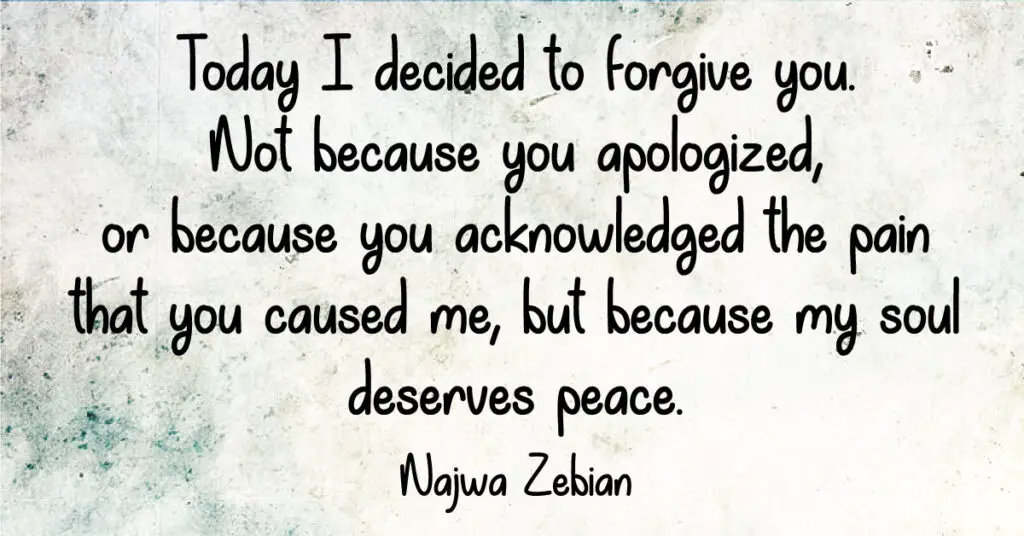Marriage is an institution that has been around for centuries, celebrating the unity of two people in a lifelong commitment. Although we all have our strengths and weaknesses, and all marriages go through moments of difficulty, researchers of the Gottman Institute have identified certain relationship habits and behaviors that can actually increase the chances of divorce. Divorce can be an extremely difficult and stressful experience, not only for the individual involved but also for their families and loved ones. Not only is this a tremendously emotional process, but it involves numerous details that must be navigated and agreed upon, creating a great deal of pressure on all parties involved. However, it is not without its problems and difficulties. In the 1970s, systematic observation of couples began in the Gottman lab.
At this time, psychology was having difficulty establishing reliable patterns of behavior for individuals. The advice suggested that psychologists avoid studying couples, as any unreliability from studying one person could be compounded by studying two. This advice was proven wrong when Dr. Gottman discovered just how much regularity existed between a couple over time.
As part of his research series, Dr. Gottman developed observational coding systems with colleagues and employed new methods for studying interaction sequences. They built a device called a “talk table” which allowed them to rate both the positive or negative intentions and impacts of messages shared between partners.
There are certain habits and behaviors that can increase the chances of divorce
Neglecting your partner
Neglecting your partner is one of the primary causes of divorce, as it can lead to a breakdown in trust and communication, causing a rift and leading to further distance between couples. Studies have shown that the longer a couple goes without communicating or engaging in an activity together, the greater their odds are of ending up divorced. This lack of connection can be caused by a variety of factors, including spending too much time on work-related tasks or other personal interests, failing to put enough effort into maintaining relationships outside of the marriage, and not making an effort to understand your partner’s needs and feelings. If these issues are left unaddressed for too long, it can ultimately result in the dissolution of the marriage.
Having unrealistic expectations
Having unrealistic expectations can be one of the key causes of divorce, as it may lead to a breakdown in communication and trust between partners. Studies have shown that couples with unreasonable expectations for each other are more likely to end up divorced than those who enter into a marriage understanding that no single person can meet all of their partner’s needs.
Unrealistic expectations often are caused by inadequate communication before marriage, such as not knowing how your partner interacts in a relationship or what they consider important values. Unreasonable expectations also occur when one or both partners assume the relationship will always remain the same, often leading them to become disappointed when things change over time. In some cases, these unrealistic expectations can cause irreparable damage to a marriage, leading to its ultimate dissolution.
Allowing a lack of trust or insecurity to build up
Not speaking openly about feelings or doubts with each other can lead to a build-up of resentment and distance between partners. If these issues are left unaddressed, they can further erode the level of trust and security that are fundamental to a healthy relationship. Without honest communication and mutual understanding, it is much more difficult for couples to regain the closeness that is essential for a strong marriage.
Furthermore, when one partner harbors feelings of doubt or insecurity in this manner, it can be hard for them to open up and feel truly comfortable within the relationship. This lack of emotional connection only adds fuel to the fire, making divorce more likely.
Not setting boundaries
Failing to establish and adhere to boundaries can have a very damaging impact on a relationship. When couples don’t make it clear what is acceptable in terms of behavior, communication, or expectations, it can create tension that may result in the partners feeling disconnected and unfulfilled due to the lack of mutual respect.
Additionally, allowing outside influences to unduly shape one’s decisions can lead to arguments and resentment, as one partner may feel their opinion isn’t important or valued by the other. Focusing solely on external forces rather than taking into account how each individual partner and their needs would best be served ultimately leads to an unhealthy dynamic and increased odds of divorce.
Lacking commitment
A lack of commitment in a marriage can be the kiss of death. Failing to invest both the time and effort needed to create a meaningful connection with your partner will only contribute to a growing disconnect between the two of you. Taking shortcuts in communication or simply not addressing issues can cause distance to accumulate, and soon, it becomes much more difficult for the couple to reconnect and reignite that spark that was once there. Without the genuine dedication from both parties, getting back on track is close to impossible.
4 horsemen of the Apocalypse
As described by Dr. John Gottman, the four horsemen of relationship conflict can be seen as harbingers for the end of a marriage. Commonly referred to as criticism, defensiveness, stonewalling, and contempt, these forces are powerful indicators that a relationship is in trouble. If left unchecked, any one (or more) of these behaviors can lead to further conflict and deeper divides between partners. Ultimately, the only way to turn things around is to consciously work on addressing and correcting these negative patterns before it’s too late.
The 4 horsemen are:
Criticism – Constant criticism can erode trust in a relationship and make one partner feel inadequate.
Defensiveness – Excessive defensiveness in arguments can shut down conversations before both parties have had a chance to express their feelings or reach a resolution.
Stonewalling – Ignoring your partner when they are trying to communicate their needs creates an unbridgeable distance between you.
Contempt – Belittling one another or expressing contempt for each other’s feelings is almost certain to cause irreparable damage over time.
How common is divorce?
Divorce is a difficult and emotional process that affects entire families, so it’s no surprise that the divorce rate in many countries is on the rise. In the US, for example, almost 50% of marriages end in divorce. This number has increased steadily since the 1950s when only 10-20% of marriages ended in divorce. Factors like dual-income households and changing social norms could be cited as some of the reasons why divorce is growing more common. Financial strain and incompatibility are often cited as additional causes for the marriage breakdown. Whatever the cause may be, there’s no denying that divorce is becoming increasingly commonplace and its effects can ripple through intertwined communities around the world.
How to cope with a divorce
Dealing with divorce can be an incredibly difficult and trying experience. It is important to remember that navigating this situation in a healthy and constructive way can help you move forward with your life in a positive and empowered manner. Here are some steps to help cope with the pain of divorce:
- Acknowledge your feelings – Allow yourself to express all of the emotions you’re experiencing without judgement or fear of what others may think. Even if it’s uncomfortable, it is important to recognize and process them in order to heal and move on.
- Connect with others – Surround yourself with supportive friends or family members who will listen without judgement or give advice unless asked for it. Talking out your thoughts and feelings can be therapeutic and also provide comfort during this difficult time.
- Find support networks – Look for resources like local support groups, online forums, counseling services, etc., which can be great sources of emotional support as you adjust to living single again.
- Take care of yourself – Reconnecting with hobbies or activities you used to love can help bring joy and balance into your life again. Exercise, spend time outdoors, read a book or watch a movie — do whatever helps you relax and take care of your mental health at this hectic time in your life.
- Focus on the future – While it might seem impossible right now, healing from a divorce does eventually happen for most people and you will find peace again eventually. In the meantime, focus on what possibilities still exist for you in the future — don’t allow yourself to stay stuck in the past memories or regretful feelings associated with the divorce itself.
The conclusion
If you see any of these signs in your relationship, it’s not hopeless! You can create a relationship that feels more fulfilling through using the tips mentioned above to change your habits. There are some key steps to take to achieve a healthier and happier relationship:
- Identify negative patterns – Pay attention to any recurring issues in the relationship and how you react when they come up so you can start making meaningful changes.
- Express needs clearly – Make sure both parties feel heard and respected by having open and honest conversations about what each person needs in order for the relationship to thrive.
- Practice self-care – Taking time for yourself is essential for maintaining emotional balance, cultivating greater empathy and understanding, and being able to truly listen and support your partner’s needs too.
- Communicate actively – Work together with your partner to set goals, find solutions, accept mistakes and handle stress or conflict in a healthy way through active dialogue instead of passive-aggressive behaviors
- Create win-win scenarios – Focus on creating mutually beneficial solutions instead of trying to get “your way” all the time — this can help foster an environment of collaboration instead of competition in the long run.
If you focus on recognizing negative patterns, communicating openly and actively, taking care of yourselves as individuals, as well as working together as partners for mutual benefit, then you’ll be well on your way toward building a strong bond between the two of you!








